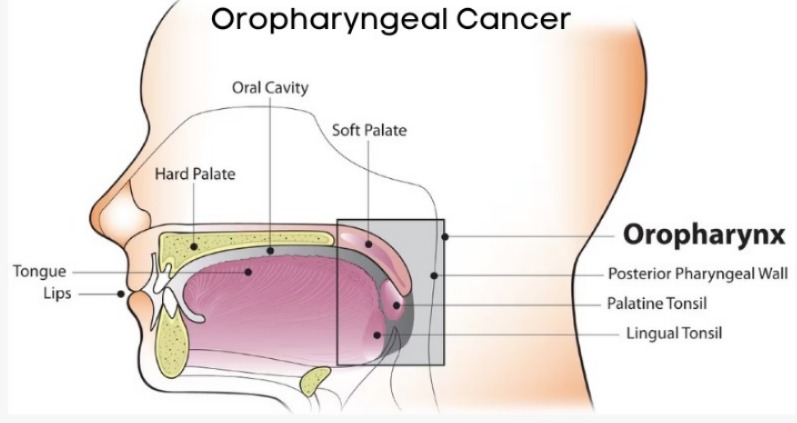In the fight against cancer, every day matters. Especially when the cancer is in the head and neck areas that define how we speak, eat, and live.
When it comes to radiation therapy in head and neck cancer, beginning treatment at the right moment can mean a smoother recovery, fewer complications, and a greater chance at a full life after cancer. Delay, even by a few weeks, can shift the odds in the wrong direction.
Why Timing Matters More Than Ever
Cancers in the head and neck tend to grow close to vital structures — vocal cords, swallowing muscles, major blood vessels. A few weeks of waiting can allow the tumor to grow, spread, and become harder to treat.
Starting radiation early can:
- Make tumors easier to control
- Reduce the need for higher, harsher doses
- Protect the healthy tissues around the cancer
- Improve overall survival rates
The best cancer specialists in Mumbai emphasize that beginning radiation within a few weeks after diagnosis offers the best results. Miss this window, and treatment may become more complicated, requiring combined therapies and longer recovery periods.
What Happens If You Wait?
Waiting might seem harmless but in head and neck cancers, time allows the disease to dig in deeper.
Delaying radiation can lead to:
- Larger tumors, needing stronger radiation
- Higher chance of cancer reaching lymph nodes
- Increased risk of serious complications
- Greater long-term side effects
Patients who begin treatment without delay are far less likely to experience the more severe and long-lasting head and neck radiotherapy side effects that often result from late intervention. When radiation therapy is started early ideally within a few weeks of diagnosis—doctors can work with smaller tumors and better-preserved anatomy, which allows for more targeted radiation and less damage to healthy tissue. Here’s how early action helps minimize some of the most common and distressing side effects:
Dry Mouth (Xerostomia):
Radiation may impact the salivary glands, especially in cancers of the oral cavity or throat. When radiation fields are broad—as they often must be with advanced tumors—there’s a greater chance of long-term dryness, thick saliva, difficulty chewing, and an increased risk of dental decay. Starting radiation earlier allows for more focused treatment plans that avoid unnecessary exposure to these glands.
Difficulty Swallowing (Dysphagia):
One of the more challenging head and neck radiotherapy side effects, dysphagia can significantly affect nutrition, hydration, and overall quality of life. When radiation is delayed, larger tumors require expanded treatment zones, which often include the muscles involved in swallowing. Early therapy makes it easier to preserve these structures and reduce inflammation during treatment.
Voice Changes or Hoarseness:
When cancer is located near the larynx or voice box, delayed treatment can lead to tumors encroaching on vocal tissues. This increases the likelihood of radiation affecting voice quality. Early radiation minimizes the area needing exposure, helping patients retain clearer, stronger voices during and after their recovery.
By acting within the ideal treatment window, patients are not only improving their chances of survival but also protecting the basic functions that define day-to-day life. From eating to speaking to simply feeling like yourself, timing can make all the difference.
The Critical Timeline After Diagnosis
Many cancer specialists follow a simple but powerful timeline:
- Week 1–2: Diagnosis, biopsy, scans
- Week 2–3: Treatment planning and simulation
- Week 3–4: Begin radiation therapy
Patients who start radiation within 30 to 40 days of diagnosis see better treatment response and fewer complications.
If you’re still waiting after 5–6 weeks, it’s time to act immediately.
Expert Care in Mumbai: Moving Quickly, Moving Smartly
In Mumbai, many leading hospitals now fast-track cancer patients to prevent harmful delays.
When you consult the best cancer specialist in Mumbai or a trusted oncosurgeon, ask clear questions:
- How soon can radiation start after diagnosis?
- How is my treatment plan being personalized?
- What steps are being taken to protect my speech and swallowing?
Top centers prioritize swift but careful treatment planning, with multidisciplinary teams working together to minimize waiting periods.
Because in cancer care hesitation costs more than time.
Timing Protects More Than Survival
Radiation, when started on time, doesn’t just control cancer. It protects everything around it.
Patients who begin promptly are more likely to:
- Keep their ability to speak clearly
- Swallow normally without long-term feeding tubes
- Maintain their quality of life after treatment
Final Thoughts: Strength Through Support
Radiation therapy for head and neck cancer has come a long way offering real hope, even in complex cases. Yes, side effects can be challenging, but with the right information, preparation, and a compassionate care team by your side, they can be managed.
The key? Stay informed. Stay connected. And never hesitate to ask for help.
With every step, you’re not just fighting cancer you’re moving closer to healing and reclaiming your life.
Radiation today is smarter and safer than ever. But even the most advanced technology can’t undo the damage if treatment is delayed or unmonitored—which is why guidance from a top oncologist in Mumbai is essential from day one.






